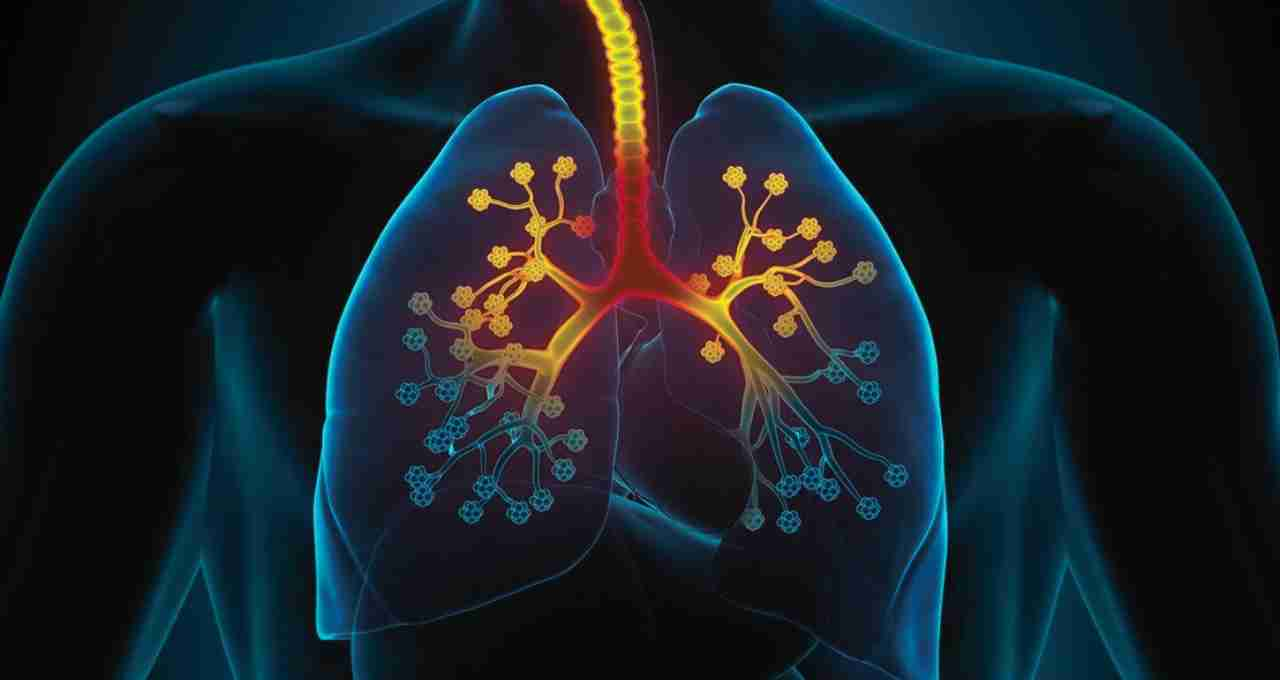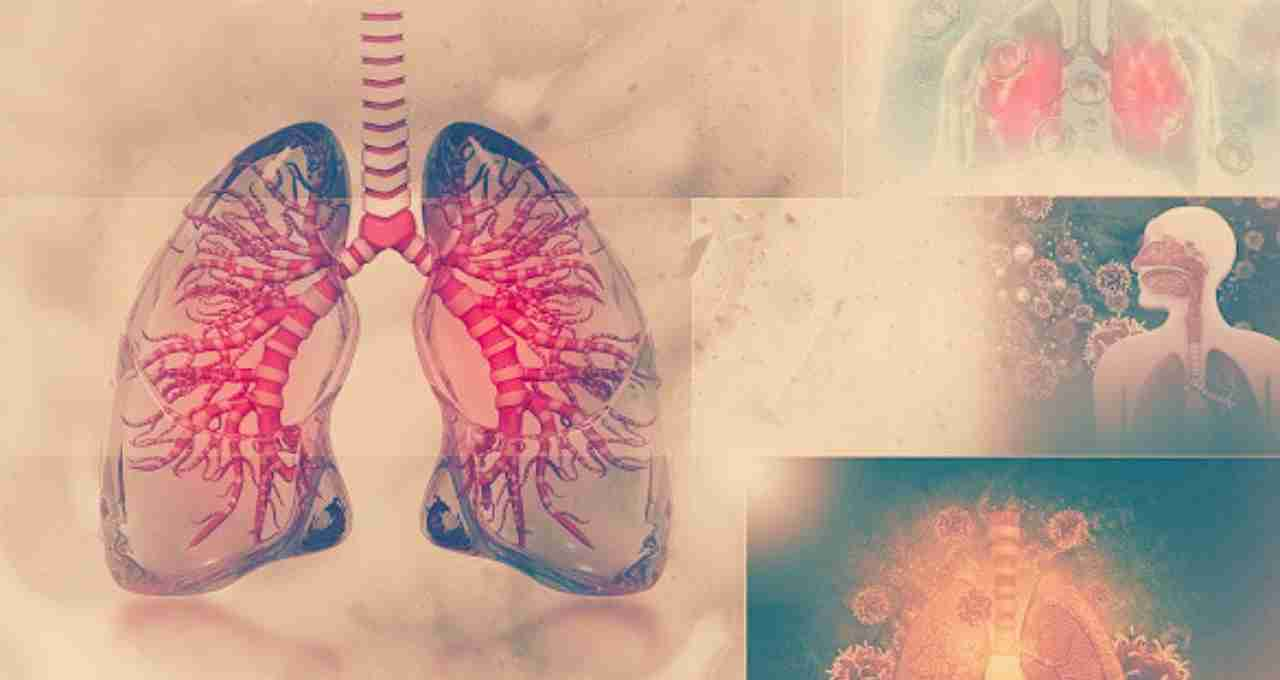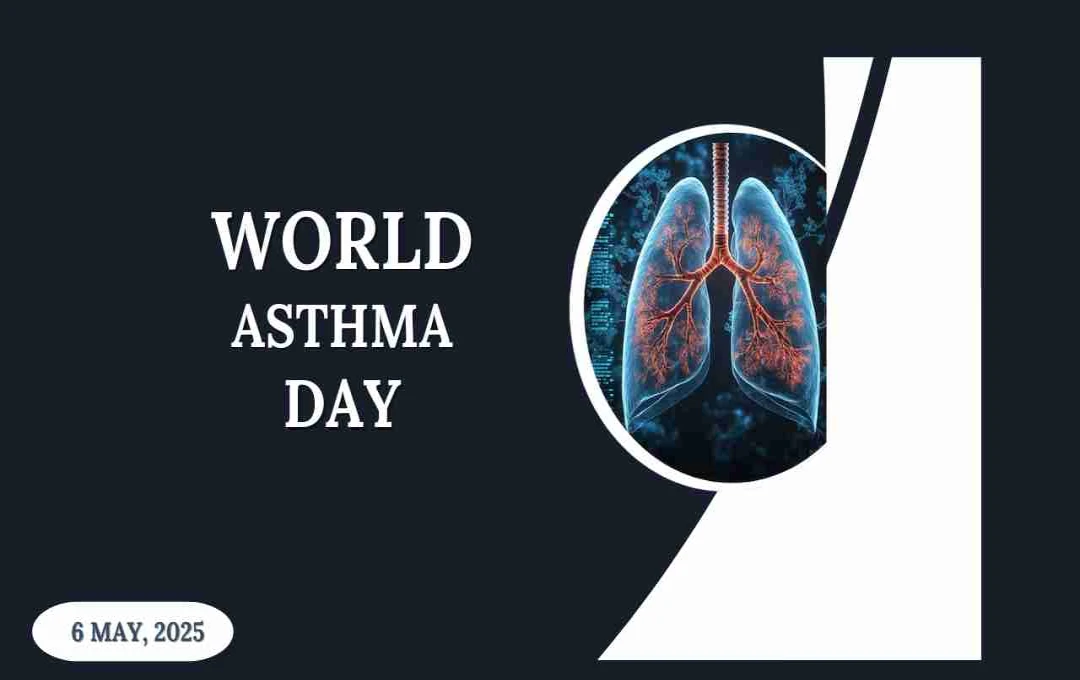World Asthma Day is observed annually on May 6th. The objective of this day is to raise awareness about asthma among the public. Asthma is a respiratory condition that causes difficulty in breathing. It can affect anyone – children, adults, or the elderly. Timely treatment and accurate information about asthma are crucial, otherwise, it can become severe.
Asthma: A Serious Respiratory Illness
Asthma is a chronic respiratory disease where the airways in the lungs become narrow and inflamed. This restricts airflow, making it difficult to breathe. The effects of asthma gradually worsen and can sometimes manifest as sudden attacks. Symptoms include shortness of breath, chest tightness, coughing, and wheezing.
Several factors can trigger asthma, including environmental pollution, dust, smoke, pet dander, sudden weather changes, or a family history of the condition. It can occur at any age, but children and the elderly are at a higher risk. However, there's no need for alarm; with proper information and timely treatment, asthma can be effectively managed.
Symptoms and Signs of Asthma
Asthma is a condition where the airways in the lungs constrict, making breathing difficult. Symptoms can develop gradually or suddenly worsen. Common symptoms include breathing difficulties, especially during exercise or climbing stairs; chest heaviness or tightness; and frequent coughing, often worse at night or in the mornings. Wheezing is another significant indicator.
Symptoms can vary from person to person and may be exacerbated by weather changes, allergies, or pollution. If you or someone you know experiences these problems repeatedly, do not ignore them. It could indicate asthma. It's essential to consult a doctor for diagnosis and treatment to prevent the condition from becoming severe. Asthma is manageable with proper information and precautions.
Preventive Measures for Asthma

Asthma is a respiratory condition that causes breathing difficulties. The condition worsens with poor air quality or exposure to allergens. However, asthma can be managed and its symptoms significantly reduced by taking simple precautions.
- Avoid Pollution: Air pollution is extremely harmful to asthma sufferers. High levels of dust, smoke, or chemical pollutants in the air make breathing difficult. Before going outside, check the Air Quality Index (AQI). If the AQI is poor, avoid going out, stay indoors, and wear an N95 mask if necessary.
- Stay Away from Allergens: Asthma is often aggravated by allergies. Dust, pollen, pet dander, perfumes, or smoke can trigger allergic reactions. Keep your home clean, regularly wash bedding and curtains, and consider using an air purifier.
- Maintain a Healthy Lifestyle: A healthy diet and regular exercise help manage asthma. Include fresh fruits, vegetables, whole grains, and protein in your diet. Avoid junk food and overly oily or spicy meals. Engage in light exercise such as walking, pranayama, or yoga. This strengthens the lungs and improves breathing.
- Avoid Smoking: Smoking is extremely harmful to asthma patients. Cigarette smoke weakens the lungs and can worsen asthma. Maintain distance from smokers and quit smoking if you are a smoker.
- Use Medications Correctly: Proper asthma treatment is essential. Take prescribed medications regularly and correctly. If using an inhaler, keep it readily available and use it as directed. Always follow your doctor's instructions.
Asthma Treatment: When and How to Start

Asthma is treatable; timely medication and care are crucial. Doctors usually recommend inhalers for asthma patients. Inhalers are small devices that deliver medication directly to the lungs, providing breathing relief. In some cases, doctors may prescribe steroid medications or nebulizers to reduce inflammation and open the airways.
Don't ignore persistent breathing difficulties, coughing, or chest tightness. Consult a doctor immediately if you experience these symptoms. Asthma patients should take their medications on time and not discontinue them without consulting a doctor. Avoiding dust, smoke, and allergens is also crucial. With regular treatment and precautions, asthma can be effectively controlled, allowing you to lead a normal life.
Why is World Asthma Day Celebrated?
World Asthma Day is celebrated annually on the first Tuesday of May. In 2025, it falls on May 6th. The main objective is to raise awareness about this serious condition. Many people still fear or misunderstand asthma. Some believe it's incurable or that medication worsens it, which is untrue. This day aims to educate people that asthma is treatable, and with timely attention, individuals can live normal lives.
On this day, hospitals, clinics, and health organizations often organize free health checkups, inhaler training sessions, and doctor consultations. Some places also hold asthma awareness rallies in schools and offices. The goal is to help people recognize asthma symptoms, seek timely treatment, and avoid any associated shame or fear. Increased public awareness enables people to find solutions rather than fearing the disease.
What Can You Do on World Asthma Day?

World Asthma Day, observed on May 6th, conveys a vital message: "Respiratory health is paramount." On this day, we can all take small yet significant steps to protect our families' health. Firstly, don't ignore persistent coughing, shortness of breath, or chest tightness. Seek medical attention immediately. Timely treatment can control asthma and allow for a normal life.
Educate those around you about asthma symptoms and prevention methods. If someone uses an inhaler, teach them the correct technique. Take precautions to avoid triggers such as dust, smoke, and pet dander. A healthy lifestyle, exercise, and avoiding pollution also help prevent asthma. On this World Asthma Day, let's pledge to protect our breath – it's our ultimate protection.














